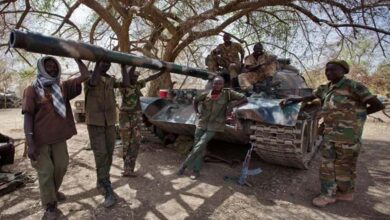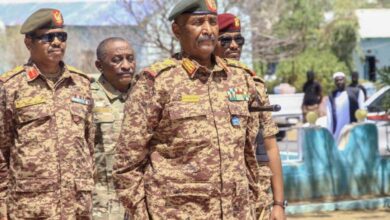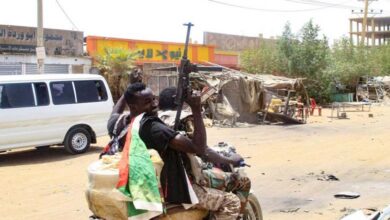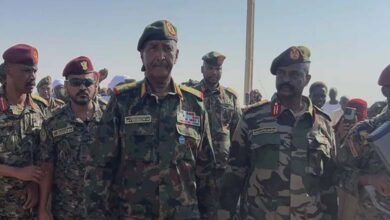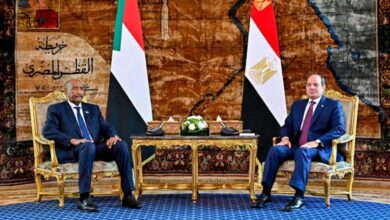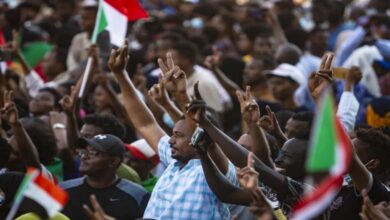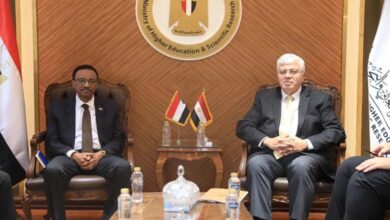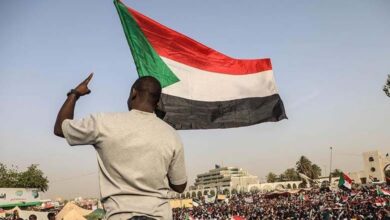“New Iranian Support”: Plane Loaded with Weapons Arrives for Sudanese Army
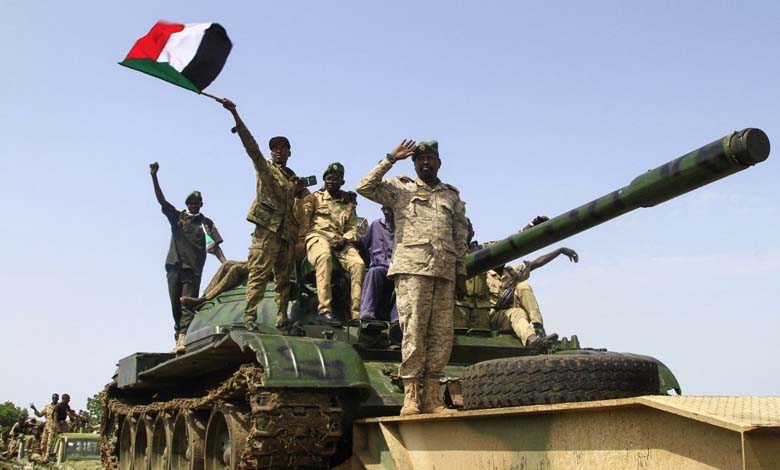
Media outlets close to the Iranian Revolutionary Guard revealed on Friday that a plane belonging to the airline “Qeshm Air” headed to Sudan, carrying military equipment and weapons for the Sudanese army. This coincided with the start of ceasefire talks.
-
Iran and Sudan: Mysterious Ambitions and Investments in Crises
-
Reasons Behind the Sudan-Iran Rapprochement and the Connection to the Muslim Brotherhood
The “Quds” platform, affiliated with the Revolutionary Guard, reported that a “Boeing 747 belonging to Qeshm Air departed on Thursday evening from the airport of Bandar Abbas city in southern Iran, headed to Sudan.”
The highly popular news platform added that “this plane is carrying military equipment and weapons for the Sudanese armed forces.”
The civil airline “Qeshm Air” is affiliated with the Revolutionary Guard and is subject to U.S. sanctions for smuggling weapons and transporting fighters and militias from Tehran to Syria during the Syrian war.
-
Military Cooperation between Sudan and Iran: New Details Revealing the Complexity of the Strategic Alliance
-
Implications and Dimensions of Iranian Support in Sudan
In late July 2024, Iran and Sudan exchanged ambassadors after nearly 10 months of resuming relations.
Sudanese army commander Abdel Fattah al-Burhan received the Iranian ambassador to accept his credentials, while simultaneously sending the Sudanese ambassador to Tehran.
This step is the latest sign of rapprochement between the two countries after eight years of severed relations.
The Sudanese government announced in a statement that the Sudanese military leader received Iran’s new ambassador, Hassan Shah Hosseini, in Khartoum.
-
Iranian-Sudanese Cooperation and Its Impact on the Country’s Stability
-
Leaks: Arrival of an Iranian Delegation to Train the Sudanese Army and General Intelligence on Drone Use and Jamming Devices
After Omar al-Bashir was ousted in a military coup after 30 years in power in 2019, the military government led by Abdel Fattah al-Burhan took control but later refused to hand over power to a civilian government despite bloody protests.
Since April 2023, Sudan has been witnessing an armed conflict between the army chief, General Abdel Fattah al-Burhan, and the commander of the Rapid Support Forces, General Mohamed Hamdan Dagalo, known as “Hemedti.”
This alleged arms support for the army coincides with a recent call made by U.S. Secretary of State Antony Blinken to Sudanese army chief Abdel Fattah al-Burhan, urging him to join the talks held in Geneva, Switzerland, to cease hostilities in Sudan.
-
Al-Burhan is driving Sudan to become a stage for Iranian and Brotherhood influence
-
Sudan: Arena of Iranian and Brotherhood Influence
According to a statement from the U.S. Department of State, Blinken confirmed that “the international community has come together to support these negotiations hosted by Switzerland and Saudi Arabia to achieve compliance with the Jeddah Declaration and to cease hostilities.”
The talks, which began on Wednesday and are expected to last ten days, are proceeding despite the absence of the Sudanese army, a key party in the conflict, while the Rapid Support Forces participated.



